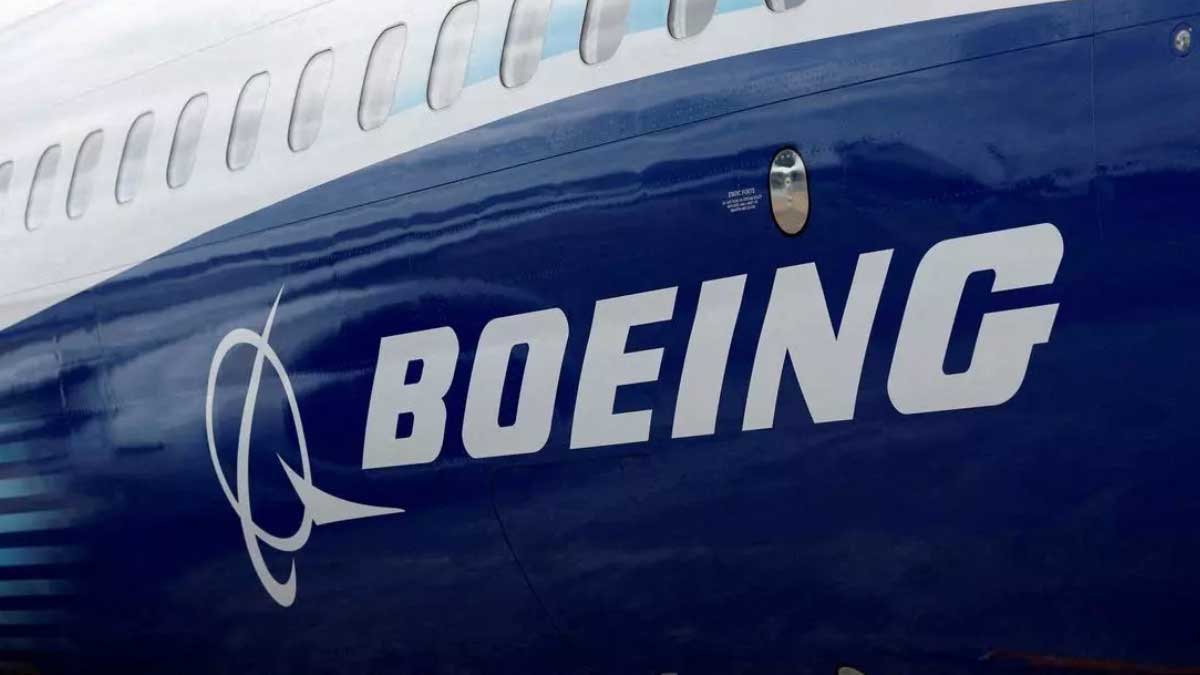- Home
- Billionaires
- Investing Newsletters
- 193CC 1000
- Article Layout 2
- Article Layout 3
- Article Layout 4
- Article Layout 5
- Article Layout 6
- Article Layout 7
- Article Layout 8
- Article Layout 9
- Article Layout 10
- Article Layout 11
- Article Layout 12
- Article Layout 13
- Article Layout 14
- Article Sidebar
- Post Format
- pages
- Archive Layouts
- Post Gallery
- Post Video Background
- Post Review
- Sponsored Post
- Leadership
- Business
- Money
- Small Business
- Innovation
- Shop
Recent Posts
Judge Blocks Boeing’s Plea Deal Over 737 Max Crashes

A federal judge has rejected a plea deal between Boeing and the U.S. Department of Justice (DOJ) related to the aerospace giant’s handling of two fatal 737 Max crashes that killed 346 people in 2018 and 2019. The decision came after strong objections from the victims’ families, who criticized the agreement as insufficient in holding Boeing accountable. The plea deal would have included Boeing’s guilty plea to a fraud conspiracy charge, a $243.6 million fine, and the implementation of compliance measures overseen by a third-party monitor. Judge Reed O’Connor dismissed the deal, citing multiple issues and describing the terms as inadequate and not in the public interest.
The original agreement required Boeing to invest $455 million in compliance and safety improvements, alongside appointing an independent monitor to ensure adherence to aviation safety regulations. However, Judge O’Connor pointed out flaws in the deal, such as a stipulation requiring prosecutors to consider diversity and inclusion when selecting the monitor. He argued that this condition detracted from the role’s primary focus on enforcing safety standards. Additionally, the judge expressed concern that the monitor would report to the DOJ rather than the court, stating that this arrangement undermined judicial authority and diminished the court’s role in ensuring justice for the victims and their families.
Paul Cassell, an attorney representing the families, praised the judge’s decision, calling it a significant victory for the families and for crime victims’ rights. He stated that the rejection of the plea deal would pave the way for a more meaningful resolution, ensuring stronger accountability for Boeing’s actions and stricter measures to prevent future misconduct. Cassell had previously urged the court to reject the deal and allow the case to go to trial, asserting that a trial would bring greater transparency and justice.
The crashes of the 737 Max in 2018 and 2019 were caused by a faulty flight control system known as the Maneuvering Characteristics Augmentation System (MCAS), which relied on data from a single sensor. The system malfunctioned, leading to the Lion Air crash in October 2018, which killed all 189 passengers and crew, and the Ethiopian Airlines crash in March 2019, which claimed 157 lives. Investigations revealed that Boeing misled regulators about the safety of the aircraft, downplayed the risks associated with MCAS, and failed to provide pilots with sufficient training on how to respond to system failures. These revelations tarnished Boeing’s reputation and led to intense scrutiny of its safety practices.
In 2021, Boeing reached a $2.5 billion settlement with the DOJ to avoid criminal charges. The settlement included a $243.6 million fine, $1.77 billion in compensation to airlines affected by the grounding of the 737 Max, and $500 million for a victims’ compensation fund. Boeing admitted to deceiving regulators during the certification process of the 737 Max. However, earlier this year, the DOJ accused Boeing of violating the terms of this settlement, reopening negotiations and leading to the now-rejected plea deal. The families of the victims opposed the new agreement, arguing that it was too lenient and failed to deliver meaningful justice.
Judge O’Connor’s decision to reject the plea deal aligns with the families’ demands for stricter accountability measures. The judge questioned why he should accept an agreement that would prevent him from imposing harsher penalties. This decision requires Boeing and the DOJ to revise their terms, with the judge giving them 30 days to present an updated plan. Legal experts predict that any renegotiated agreement will likely include tougher oversight provisions, greater transparency, and potentially larger financial penalties.
The ruling represents a significant setback for Boeing, which has been striving to recover from the reputational damage caused by the 737 Max crashes. The rejection of the plea deal underscores the ongoing challenges Boeing faces in addressing the legal and ethical consequences of the disasters. While the company has not yet commented on the decision, the outcome keeps public attention on its actions and the broader implications for aviation safety. Families of the victims continue to demand accountability, ensuring that Boeing’s role in the tragedies remains under scrutiny as negotiations proceed.
Recent Posts
Categories
- 193 Countries Consortium Partner1
- 193cc Digital Assets2
- 5G1
- Aerospace & Defense48
- AI37
- Arts3
- Banking & Insurance11
- Big Data3
- Billionaires1,261
- Boats & Planes1
- Business332
- Careers13
- Cars & Bikes79
- CEO Network1
- CFO Network17
- CHRO Network1
- CIO Network1
- Cloud10
- CMO Network18
- Commercial Real Estate7
- Consultant1
- Consumer Tech194
- CxO1
- Cybersecurity73
- Dining1
- Diversity, Equity & Inclusion4
- Education7
- Energy8
- Enterprise Tech29
- Events11
- Fintech1
- Food & Drink2
- Franchises1
- Freelance1
- Future Of Work2
- Games149
- GIG1
- Healthcare79
- Hollywood & Entertainment203
- Houses1
- India’s 1000 Richest1
- Innovation46
- Investing2
- Investing Newsletters4
- Leadership65
- Lifestyle11
- Manufacturing1
- Markets20
- Media327
- Mobile phone1
- Money13
- Personal Finance2
- Policy569
- Real Estate1
- Research6
- Retail1
- Retirement1
- Small Business1
- SportsMoney42
- Style & Beauty1
- Success Income1
- Taxes2
- Travel10
- Uncategorized13
- Vices1
- Watches & Jewelry2
- world's billionaires1,230
- Worlds Richest Self-Made Women2
Related Articles
South Korea Plane Crash: A Tragic Loss and Global Mourning
The tragic plane crash at South Korea’s Muan International Airport on Sunday...
By 193cc Agency CouncilDecember 30, 2024H-1B Visa Debate Splits Trump Allies and Silicon Valley
The debate over H-1B visas has once again become a contentious issue,...
By 193cc Agency CouncilDecember 28, 2024Trump Moves $4B Stake in Truth Social Parent, Stock Drops 6%
Donald Trump recently transferred his 57% stake in Trump Media & Technology...
By 193cc Agency CouncilDecember 20, 2024House Rejects Trump-Backed Funding Bill, Shutdown Looms
The U.S. House of Representatives rejected a new government funding bill on...
By 193cc Agency CouncilDecember 20, 2024















Leave a comment